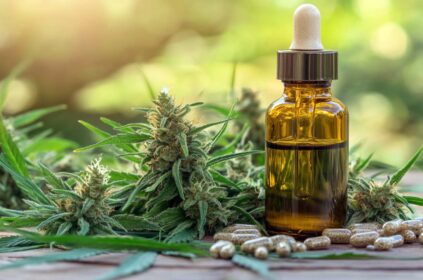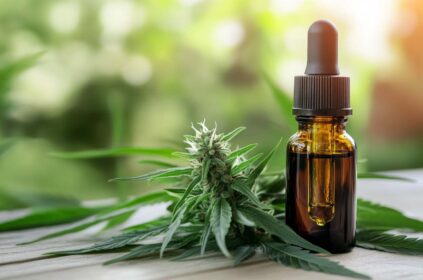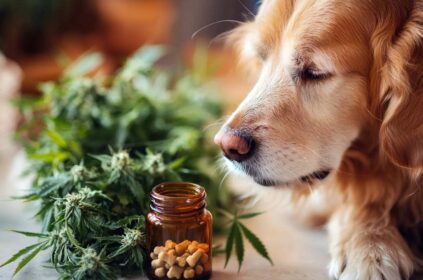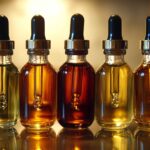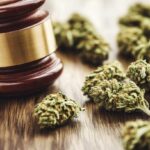Introduction
Post-Traumatic Stress Disorder (PTSD) is a condition that can profoundly alter a person’s daily life, often stemming from experiences like military combat, serious accidents, or personal trauma. While many individuals find some relief through traditional therapies such as psychotherapy or medications, these treatments can come with unwanted side effects and may not work for everyone. In recent years, CBD (cannabidiol) has emerged as an alternative avenue of relief due to its potential therapeutic benefits. Derived from the hemp plant, CBD is making waves as a possible aid for managing PTSD symptoms. This article will explore the current research surrounding CBD and its implications for those struggling with PTSD, focusing particularly on its effects on anxiety, stress, and sleep disturbances.
Understanding PTSD
PTSD manifests in various ways, often leading to a complex web of symptoms. People coping with PTSD might experience:
- Anxiety and Panic Attacks: Heightened anxiety often leads to feelings of unease and a constant sense of danger.
- Mood Swings: Individuals may find themselves fluctuating between anger, irritability, and depression.
- Depersonalization: Some may feel detached from their own thoughts or sense of reality.
- Sleep Disorders: Sufferers frequently grapple with insomnia or distressing nightmares that make it difficult to achieve restful sleep.
Managing these symptoms can be challenging, particularly with treatments that may not always fully address an individual’s needs. Psychotherapy techniques, while effective, require time and commitment, and medications often introduce side effects that can complicate recovery.
The Role of CBD in PTSD Treatment
Therapeutic Potential
Current research into CBD and its impact on PTSD shows encouraging potential. Here are some key findings:
- Aversive Memory Extinction: Some studies indicate that CBD may help in the extinction of negative memories and possibly prevent them from resurfacing. This process is tied to the brain’s endocannabinoid system, which plays a crucial role in how memories are stored and processed.
- Anxiety Reduction: Unlike THC, another primary compound found in cannabis, CBD doesn’t produce psychoactive effects. Instead, numerous studies highlight its effectiveness in alleviating anxiety without triggering anxiety-inducing side effects typically associated with THC.
- Sleep Improvement: Many people with PTSD experience sleep challenges. Emerging research suggests that CBD may assist in enhancing both the quantity and quality of sleep, thereby providing respite from the anguish caused by disrupted sleep patterns.
Mechanism of Action
The effectiveness of CBD can be attributed to several mechanisms:
- Interaction with the Endocannabinoid System: CBD works indirectly on cannabinoid receptors in the brain. By slightly inhibiting the breakdown of endocannabinoids, CBD may enhance the natural processes that relieve stress and promote emotional stability.
- Anti-inflammatory Response: CBD possesses anti-inflammatory qualities that can also have beneficial effects on mood and anxiety, addressing some of the physiological contributors to PTSD.
Benefits of Using CBD for PTSD
Symptom Reduction
A multitude of benefits may be derived from incorporating CBD into a treatment plan for PTSD:
- Anxiety and Stress Management: Clinical observations suggest that regular use of CBD can lead to a marked reduction in anxiety levels.
- Emotional Regulation: CBD could assist in normalizing mood fluctuations often linked to PTSD.
- Enhanced Sleep Quality: By promoting better sleep, CBD helps address one of the key challenges faced by many PTSD patients.
Safety and Tolerability
A significant advantage of CBD is its safety profile. Compared to traditional PTSD medications, CBD presents:
- Fewer Side Effects: Side effects are typically minimal and can include fatigue or changes in appetite, but these are often far less severe than those associated with many prescription medications.
- Non-Addictiveness: As CBD is non-psychoactive, it poses less risk of dependency, making it a safer long-term option for individuals seeking relief.
Real-World Applications and Studies
Research findings further bolster CBD’s potential use in treating PTSD:
- Human Trials: One study involving adults with PTSD and the oral administration of CBD over eight weeks showed significant reductions in symptoms, particularly regarding anxiety and irritability.
- Randomized Trials: Another large-scale study indicated that participants using CBD-dominant products reported greater reductions in anxiety symptoms compared to those using THC-dominant alternatives. Notably, this reduction in anxiety occurred without the risks of impairment commonly linked with THC.
How to Use CBD for PTSD
Forms of Administration
Choosing the right form and dosage of CBD is crucial to effectively managing symptoms:
- Oral Options: CBD oils, tinctures, capsules, and edibles offer variety in consumption. Many users find oils advantageous for quicker effects.
- Topical Applications: While topical products can provide localized relief, their effectiveness for systemic symptoms may be limited.
Dosage Considerations
Finding the right dosage can be an individual journey:
- Start Low and Go Slow: Initial dosing often starts low, allowing individuals to monitor their reactions before gradually adjusting dosage as needed. Consulting with a healthcare provider can provide tailored guidance.
Complementary Therapies
CBD can serve as a complement to traditional therapeutic approaches:
- Psychotherapy: When paired with evidence-based therapies such as cognitive processing therapy or mindfulness-based stress reduction, CBD may enhance overall treatment efficacy.
Conclusion
The potential of CBD as a therapeutic agent for reducing the symptoms associated with PTSD represents an exciting frontier in mental health treatment. With its favorable safety profile, ability to enhance emotional well-being, and capacity to foster better sleep, CBD could be a viable complement to traditional treatment methods. While more research is warranted to fully clarify its benefits, early studies are promising, indicating that for many, CBD may offer a much-needed ray of hope in managing the effects of PTSD.
Actionable Tips
- Consult a Healthcare Provider: It’s essential to discuss any CBD regimen with a healthcare provider. Understanding potential interactions with other medications can guide effective usage.
- Choose Reputable Products: Always source CBD from trusted brands that provide third-party testing for potency and purity to ensure quality.
- Track Progress: Keeping a personal journal can help monitor the impacts of CBD on PTSD symptoms, aiding in adjustments to the treatment plan.
With careful consideration and the right approach, individuals with PTSD may find relief and improved quality of life through CBD, illuminating a path towards healing and recovery.


